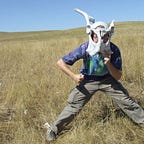Day 4 in the archives: saved voices
Today was less a day for discovering new facts than it was a day for immersing in a particular set of voices from the past that I feel particularly honored to have heard.
Finding the words left behind by people unrecorded by history is a peculiar honor that many archival researchers come upon at some point in their work. The question is what to do with those words. Today, I simply wanted to hear them talk. Some days, I think, are best spent shutting up the analytical voice of the brain and just listening to voices seldom heard.
It’s a good collection for that. I was reading correspondence received by Bailey as Chairman and by the other members of the 1908 Commission on Country Life (“Uncle” Henry Wallace, Gifford Pinchot, Kenyon Butterfield, and Walter Page). They received feedback in a few forms — they distributed a half million circulars, or questionnaires, to people living in rural areas across the country (tens if not hundreds of thousands of which were returned); they traveled the country hosting listening sessions, they advertised the idea that people living in the country host schoolhouse meetings on December 5 to come up with a list of needs and a plan for their specific communities — and they received a lot of letters from farmers, rural teachers, postal workers, and the like. I spent most of the day reading through some of those letters.
They ranged from brief, terse postcards to lengthy diatribes. The major concerns voiced by these correspondents had to do with education in the country schools (specifically that the schools teach agricultural subjects rather than just pointing students away from the country), road conditions and transportation, mail service (with many asking specifically for parcel post — a recommendation the Commission would make, and one that would be come to fruition just five years later), churches (both the preaching and the music some people had things to complain about — one noting that so many clung unnecessarily to “superstitions” that simply would not attract people in this scientific age…), “Commission-men” and “Commissioners” (who had something to do with selling produce; I need to look into this more), and of course the notorious middlemen. Some were excited by President Roosevelt’s appointment of a commission; others made very clear that farmers would do just fine by themselves if they could just sell their surplus produce at a fair rate in town. Members of the Commission, interestingly, including folks like Bailey and Pinchot directly as well as secretaries when they were absent, responded to many of these concerned citizens, and assured them that they shared the belief that the improvement of rural life would depend entirely upon rural people. Their hope was to energize movement in that direction. And it seems like this was a historical moment in which a real movement was being felt — the excitement of a young guy working as executive secretary on the commission as he described in letters to the commission members, while on their national tour, about the “thousands” of schoolhouse meetings that were being confirmed all across the country to take place on December 5th, was really palpable.
And it’s just touching to me that all of these letters from farmers, many of which are rife with misspellings and grammatical errors, but all of which carry a self-awareness of the significance of what they were doing by writing to “the President’s Commission,” were really read, and were preserved by Bailey as Chairman his whole life in one of the most complete collections to make it into the Bailey Papers at Cornell. That they represent a real movement that took hold, even if short-lived, and that they are still together, preserved, in a box in the bottom of a library at the top of a hill, is really rather amazing to me. And it’s also deeply humbling.
And that’s all the #baileythings I have today.
For some context, see my intro post. To get in touch, use my website.
The archive archive: Intro | Days 1–3
Insights all gleaned from Liberty Hyde Bailey Papers, #21–2–3342, Division of Rare and Manuscript Collections, Cornell University Library.
